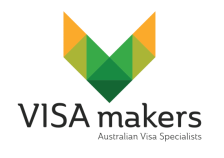Key points:
- Only one of Australia's top-five listed companies could be considered a 'tech' firm, biotech giant CSL
- WiseTech's CEO said Australia's tech sector could employ another 200,000 people overnight they had the required skills
- Tech firms say they are having to bring in skilled workers from overseas, but it is difficult due to immigration red tape
Australia punches well above its weight in the hi-tech space, but those running the companies say staying here is becoming increasingly difficult.
"The fundamental issue is we're short, and it's probably short about 200,000 people across the whole of the marketplace in Australia," WiseTech Global CEO Richard White told the ABC.
Sydney-based WiseTech Global is an international provider of software solutions for the logistics industry.
It is a $10 billion company, but Mr White said an inability to get suitably qualified staff is one of his biggest problems.
"We employ, just in our Sydney office, about 15 people a month," he said.
"We would be able to double that easily without any real constraint on the business."
But WiseTech cannot do so, he said, because in Australia at least, the right people do not exist.
Another world-leading Australian hi-tech company is Rode Microphones.
Nearly all its products are sold overseas and founder Peter Freedman laments the same problem as WiseTech Global — Australia is not producing the people he needs.
"We're doing things that nobody else does in this country," Mr Freedman told the ABC.
But these business managers say getting workers here from overseas is not easy because of Government red tape and visa restrictions.
Mr Freedman said it is short-sighted.
"I need scientists, engineers, toolmakers, machinists," he said.
"That's what I need, and they can then train the next generation of Australians, and they of course are the next generation of Australians anyway, their children."
ASX still dominated by old industries
The stock market gives a big clue as to why Australia has such a shortage of people for hi-tech industries.
The top five companies in Australia are BHP, the Commonwealth Bank, Rio Tinto, CSL and Westpac — however, only CSL could be conventionally regarded as hi-tech.
In the United States, the top five companies are all hi-tech: Microsoft, Apple, Amazon, Alphabet (which owns Google) and Facebook.
"There needs to be a message to parents and teachers and those in the education system that we absolutely have to start focusing on technology careers as a fundamental thing," Mr White said.
Like Mr Freedman at Rode Microphones, Mr White is also turning overseas to fill the gaps in his business.
However, because software does not depend on location, Australia is often missing out altogether.
"If we can't grow fast enough in Australia, then we can add people in our US office, or in our Netherlands office, or in our UK office, or in our South African office," he explained.
The university sector agrees there is a shortfall.
The Australian Council of Deans for Information and Computer Technology represents the heads of all the schools at universities teaching those subjects.
It told the ABC around 40,000 students are enrolled in those fields, but adds, "we need to do more to encourage and support our next generations to engage with information and computer technologies."
The Council of Deans said it was trying hard to listen to industry, but changes to the skills required were so rapid, it was finding it hard to keep up.
"There's no limit to the amount of good people that can be used in manufacturing if they have skill, and that skill will come from immigration and more education," Mr Freedman said.
The latest unemployment rate of 5.2 per cent equates to around 700,000 people out of work.
If the 200,000 potential vacancies in the high-tech sector were filled with local workers, the jobless rate would plunge below 4 per cent and the biggest issue holding back the Australian economy, which is stagnant wages growth, would almost certainly disappear.
Mr White predicts what he calls a "human tragedy" of rising unemployment if the Australian economy cannot make the transition.
"I don't think everybody has to be a rocket scientist, we're not all going to be Sheldon out of Big Bang Theory," he said.
"But what we want to be is people who are talented, value-creating, knowledgeable workers who can make a difference to our society and to the country."
Mr Freedman is a little blunter.
"As I said once to a prime minister: get out of my way and let us do the decision making."
STORY CREDIT TO THE LINK BELOW:
www.abc.net.au/news/2019-08-24/jobs-are-waiting-to-be-created-but-skilled-workers-lacking/11442270

 RSS Feed
RSS Feed